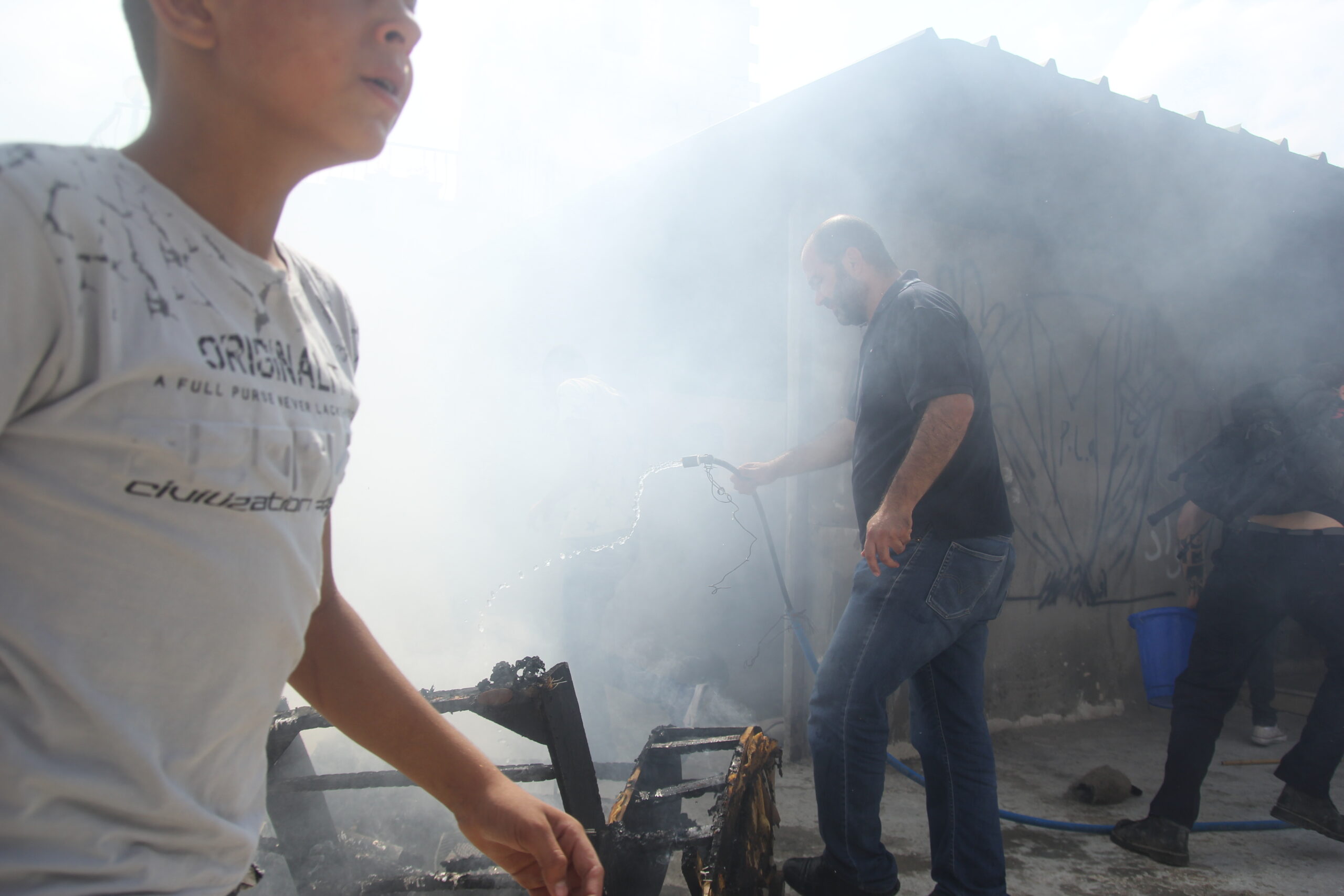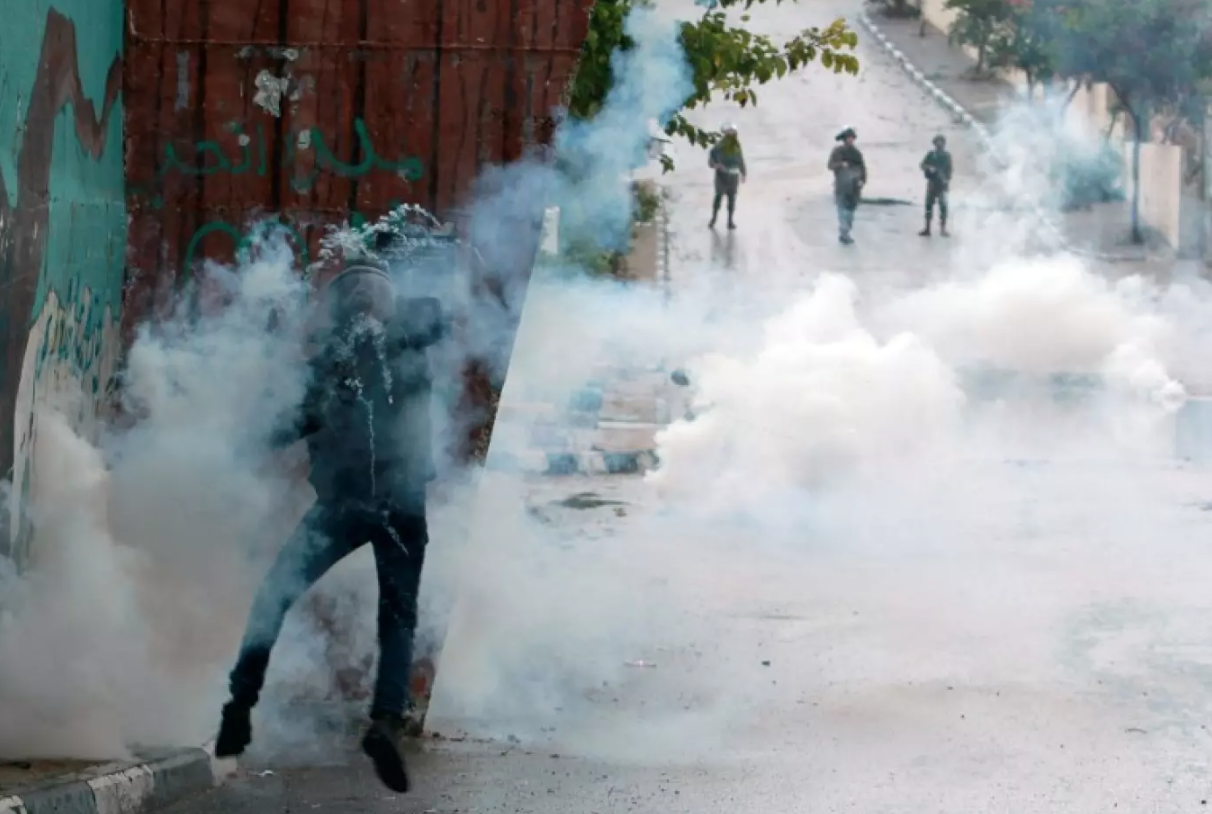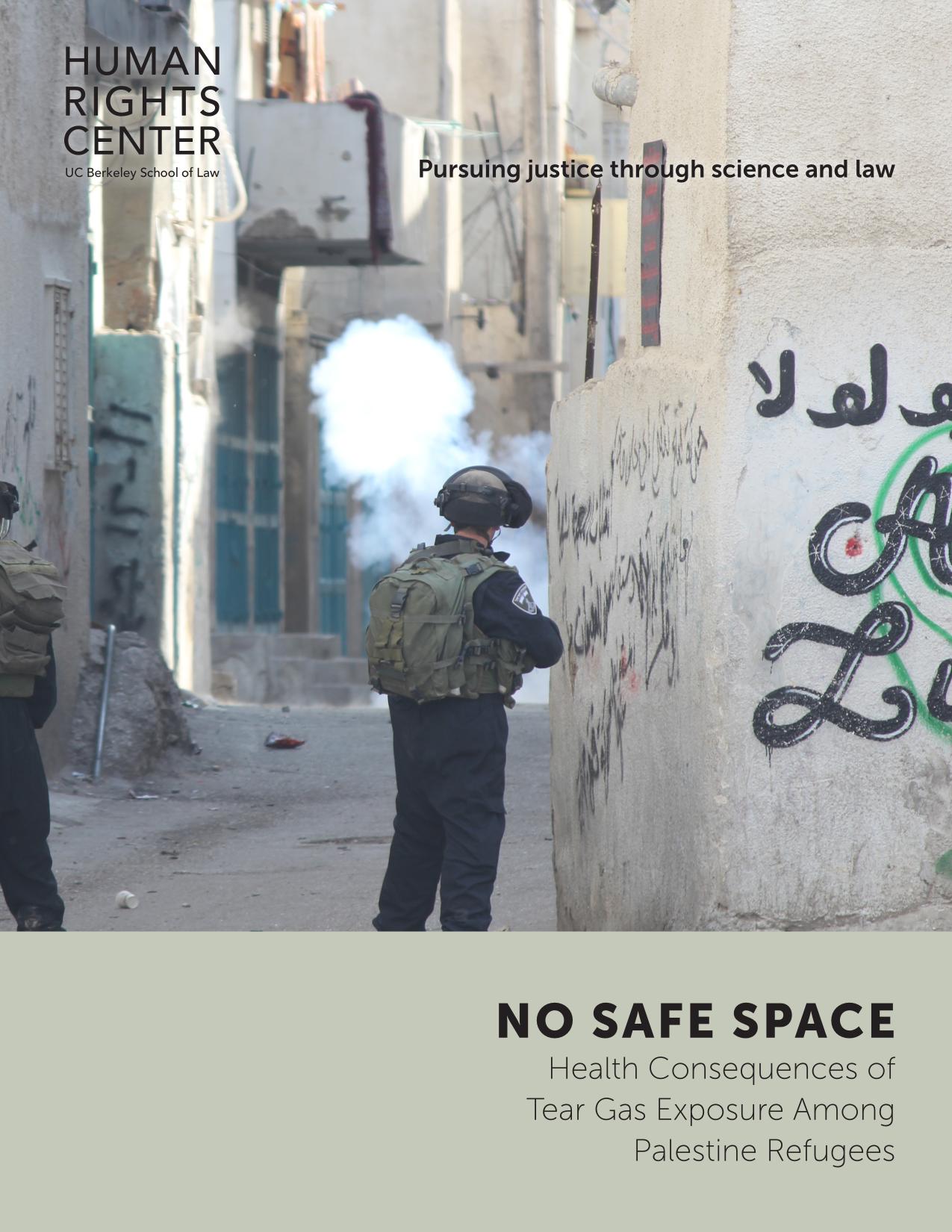
In response to the frequent use of tear gas by Israeli Security Forces (ISF) in Aida refugee camp in Bethlehem, the Human Rights Center, together with other University of California researchers, investigated the negative physical and mental health effects of chemical crowd control weapons on daily life among Palestinians living in Aida camp. The findings of this work, conducted in the aftermath of former U.S. President Donald Trump’s recognition of Jerusalem as Israel’s capital in December 2017, were reported in No Safe Space: Health Consequences of Tear Gas Exposure Among Palestine Refugees, the first report to analyze the effects of the use of tear gas in Aida and Dheisheh refugee camps.
The study found widespread and indiscriminate use of tear gas in Aida camp. “We found that the constant and unpredictable use of tear gas in Palestine[’s] refugee camps has a devastating effect on the mental and physical health of residents—especially the most vulnerable, including pregnant women, children, the elderly, and people already in ill health,” said Rohini Haar, an HRC advisory board member, emergency physician, and affiliate of Physicians for Human Rights.
Key Facts
After conducting a randomized survey of 236 individuals in Aida camp and 10 focus groups in Aida and Dheisheh camps in August 2017, researchers found:
Daily life
The frequency and unpredictability of ISF raids, and ensuing use of tear gas are among the most distressing aspects for people living in the camps.
Fear
There is widespread fear of the long-term impacts of chemical exposure as well as fear that the tear gas currently being used is much more potent, long-lasting, and dangerous than that used in previous years, causing worse and longer lasting side effects.
Exposure
100% of residents surveyed reported being exposed to tear gas in the past year; over the same period, 84.3% were exposed in the home, 9.4% at work, 10.7% in school, and 8.5% elsewhere, in a car for instance.
Physical health
Respondents noted diverse symptoms from tear gas exposure, including loss of consciousness, miscarriage, breathing difficulties (including asthma), coughing, dizziness, rashes, severe pain, allergic dermatitis, headaches and neurological irritability, blunt trauma from canister injuries, and more.
Mental health
ISF raids into the camps, which almost invariably involve the use of tear gas, resulted in very high levels of psychological distress, resulting in sleep disruption, acute stress responses, and chronic post-traumatic stress disorder.
Education
Children and teachers reported being unable to carry out school activities during and after ISF attacks, since tear gas regularly enters school buildings and compounds. There are approximately 1,600 students in total enrolled at the two UNRWA schools in the camp.
News

January 12, 2018
This Palestinian camp is the community most exposed to tear gas in the world
A protester attempts to throw a canister back at Israeli soldiers during clashes at Aida refugee camp (AFP) HRC in the News — Middle East Eye: This
![Recent protests have increased exposure of Palestinians to tear gas, says a new study [File: Reuters]](https://humanrights.berkeley.edu/wp-content/uploads/2024/01/Screen-Shot-2024-01-30-at-9.26.40-PM.png)
December 28, 2017
‘Devastating’: Israeli tear gas’ effect on Palestinians
Recent protests have increased exposure of Palestinians to tear gas, says a new study [File: Reuters] HRC in the News — Al Jazeera: ‘Devastating’: Israeli

